
Featured, Announcement, Baseball, Softball
Why We Acquired Blast Motion
- by Chris O’Dowd, CEO of WIN Reality
I’ve always believed that the future of player development lies at the intersection of elite instruction, real-time feedback, and scalable technology. For me, that belief is personal. From the moment I picked up a bat, I was lucky to be surrounded by people who helped shape my journey from Little League to college ball, to a career in professional baseball. At every level, I had access to world-class coaching, critical feedback, and timely guidance from some of the best minds
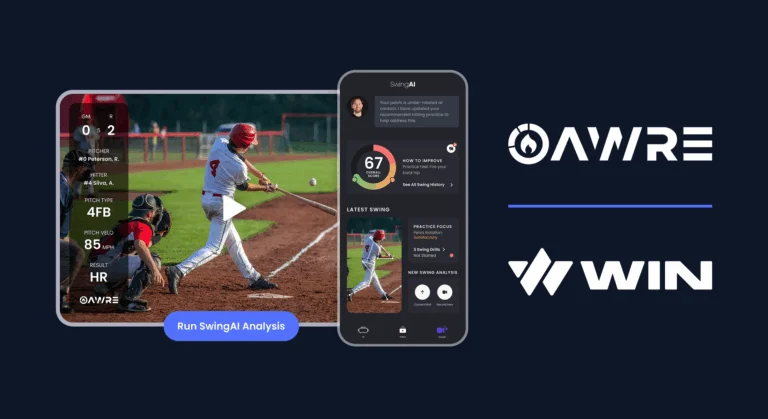
Announcement
WIN Reality and AWRE Partner to Bring Automated SwingAI Analysis
For coaches and players, more swings mean more opportunities to improve but only if you have the right tools to measure and adjust. That’s why we’re excited to announce a new partnership with AWRE Sports — bringing automated SwingAI biomechanics analysis to swings recorded on the AWRE platform. Every swing captured in AWRE will be automatically analyzed by WIN Reality’s SwingAI technology delivering actionable mechanical insights with no extra recording, uploads, or workflow changes for coaches and players. How This Integration Works: This partnership connects AWRE’s industry-leading video capture and analytics tools with WIN Reality’s AI-powered swing analysis platform, unlocking

Featured, Announcement, Baseball, Softball
Why We Acquired Blast Motion
I’ve always believed that the future of player development lies at the intersection of elite instruction, real-time feedback, and scalable technology. For me, that belief is personal. From the moment I picked up a bat, I was lucky to be surrounded by people who helped shape my journey from Little League to college ball, to a career in professional baseball. At every level, I had access to world-class coaching, critical feedback, and timely guidance from some of the best minds in the game. When I struggled, there was always someone like Todd Helton in the cage or Clint Hurdle with
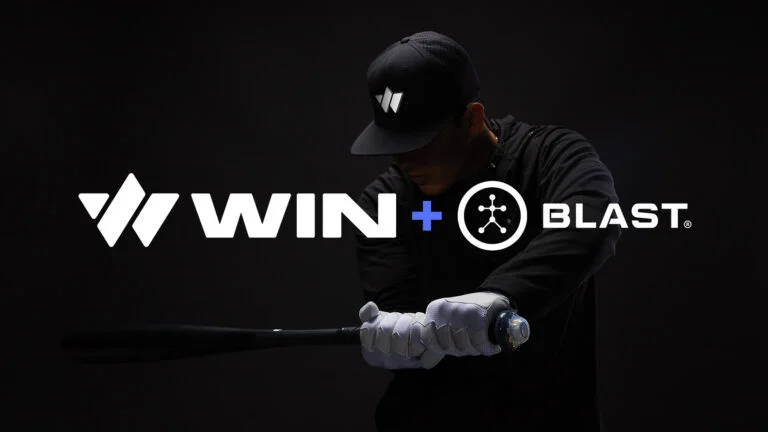
Featured, Announcement, Baseball, Softball
WIN Reality Acquires Blast Motion: A New Era in Swing Development
AUSTIN, TX June 23, 2025. WIN Reality, the leading virtual reality training and AI-powered swing analysis platform for baseball and softball athletes, announced the acquisition of Blast Motion, the global leader in swing sensor and motion analysis technology. Together, the two companies have powered over 500 million swings across VR, sensor, and AI-powered training, forming the largest swing dataset in sports. This strategic acquisition brings together two of the most trusted and innovative technologies in player development to create the most complete hitter development ecosystem in the game. With this acquisition, WIN Reality expands its offering by combining its virtual
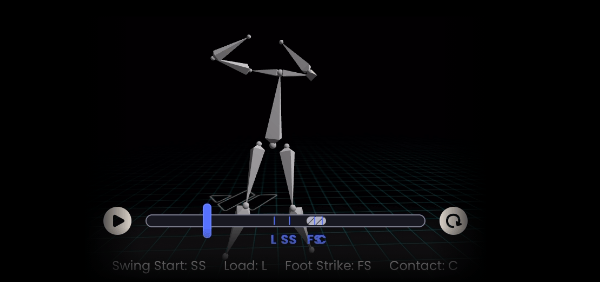
Case Studies, Swing Series
Vladimir Guerrero Jr. Swing Analysis
When Vladimir Guerrero Jr.’s swing is on display, it’s more than just power, it’s a showcase of elite sequencing, balance, and control. The ball doesn’t just leave his bat, it rockets off with a vengeance. But beneath the brute strength and loud contact lies one of the most biomechanically balanced and efficient swings in baseball.

Winner's Circle, Video
The Development Gap: Why Some Players Soar and Others Stall
We're breaking down the 3 key foundational elements every coach and parent need to know for their player's development.
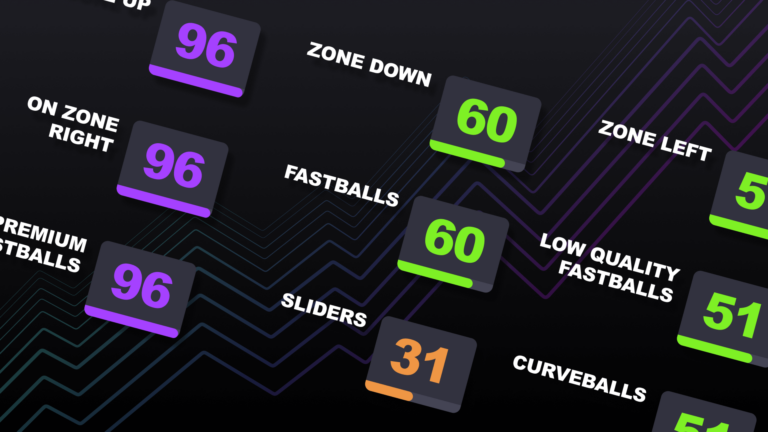
Training
Understanding the WIN Assessment Scoring System
The WIN Assessment Scoring System is a thorough scoring method that connects scientific principles with familiar baseball/softball scouting terms. It assesses a player’s hitting abilities by examining several key factors: impulse control, decision-making, visual discrimination, pattern recognition, motor planning, motor coordination, and neuromuscular ability. These factors are then correlated with a range of batting performance metrics, including swing decision, reaction time, on time rate by pitch types and location, early vs. late swings, hard hit rate, chase rate, plate discipline, and power metrics such as bat speed. Scores Scores are based on the percentile all hitter falls into for each
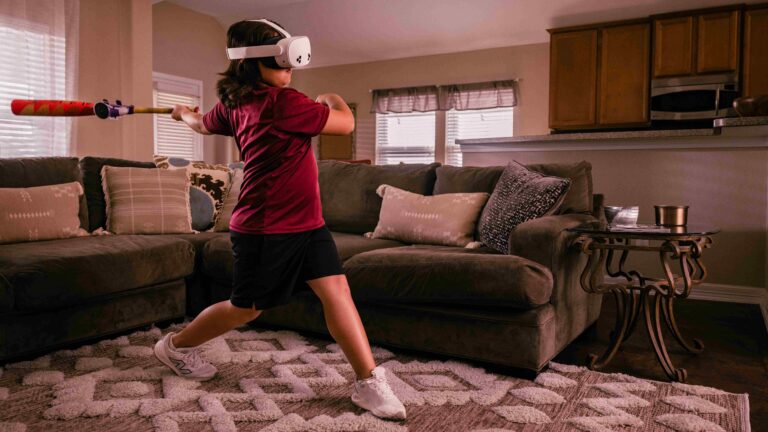
Baseball, Featured, Softball
Analyzing Bat Speed by Age
Bat speed is one of the most critical metrics for baseball and softball hitters. It is an important measuring stick for a hitter’s ability to do damage at the plate. Bat speed is the speed at which the bat moves through the swing, usually measured at contact. High bat speed creates a greater potential for higher exit velocity, increasing the distance the ball will travel and the hitter’s ability to do damage at the plate. Improving bat speed involves a combination of building strength, explosiveness, efficient swing sequencing, and mobility. To compete at each level of the game, there is
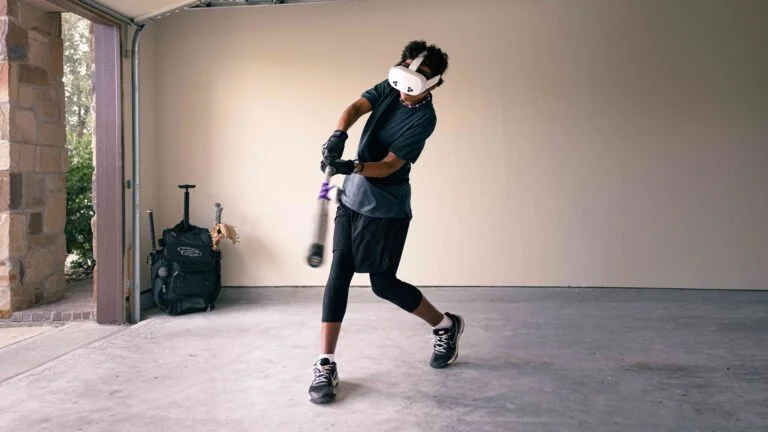
Baseball, Featured, Softball
How to Make a Batting Cage for Your Backyard
For baseball and softball players, regular batting practice is essential for developing consistent mechanics, hand-eye coordination, and improving power. While commercial batting cages or hitting lessons can be effective, they are often expensive and inconvenient. Building a backyard batting cage provides a convenient alternative that allows you to train on your schedule without having to make continuous payments beyond the initial investment. The Short Answer: Setting up a backyard batting cage involves selecting an ideal location, constructing a sturdy frame, installing durable netting, and adding finishing touches like pitching machines and hitting mats. While it requires some time and effort,
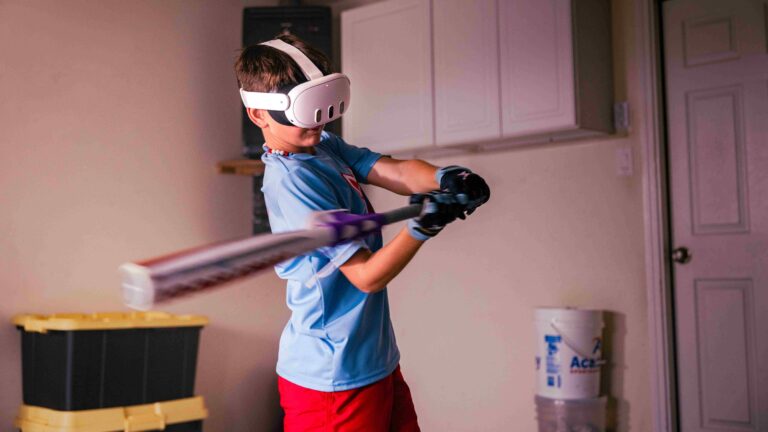
Baseball, Featured, Softball, Training
How to Increase Bat Speed
Every baseball and softball player dreams of crushing the ball, driving line drives into the outfield gaps, or home runs soaring over the fence. Achieving that level of power at the plate doesn’t just happen by chance—it requires developing an important element of hitting: bat speed. The faster you can swing the bat, the greater your potential for high exit velocity, which translates into harder-hit balls and longer distances. Whether you’re looking to contribute more to your team, impress scouts, or simply elevate your game, developing bat speed is a key step toward unlocking your full potential as a hitter.